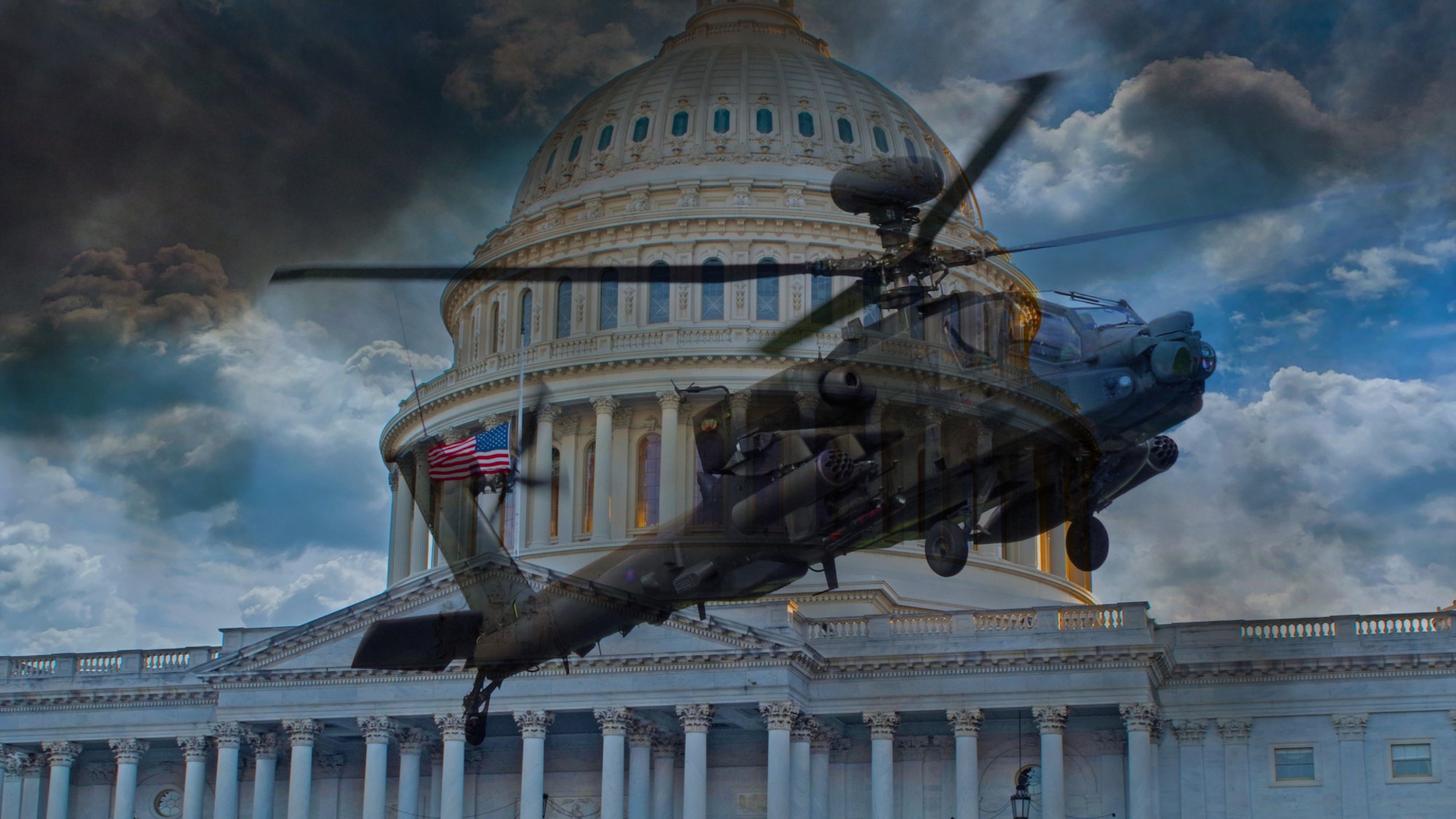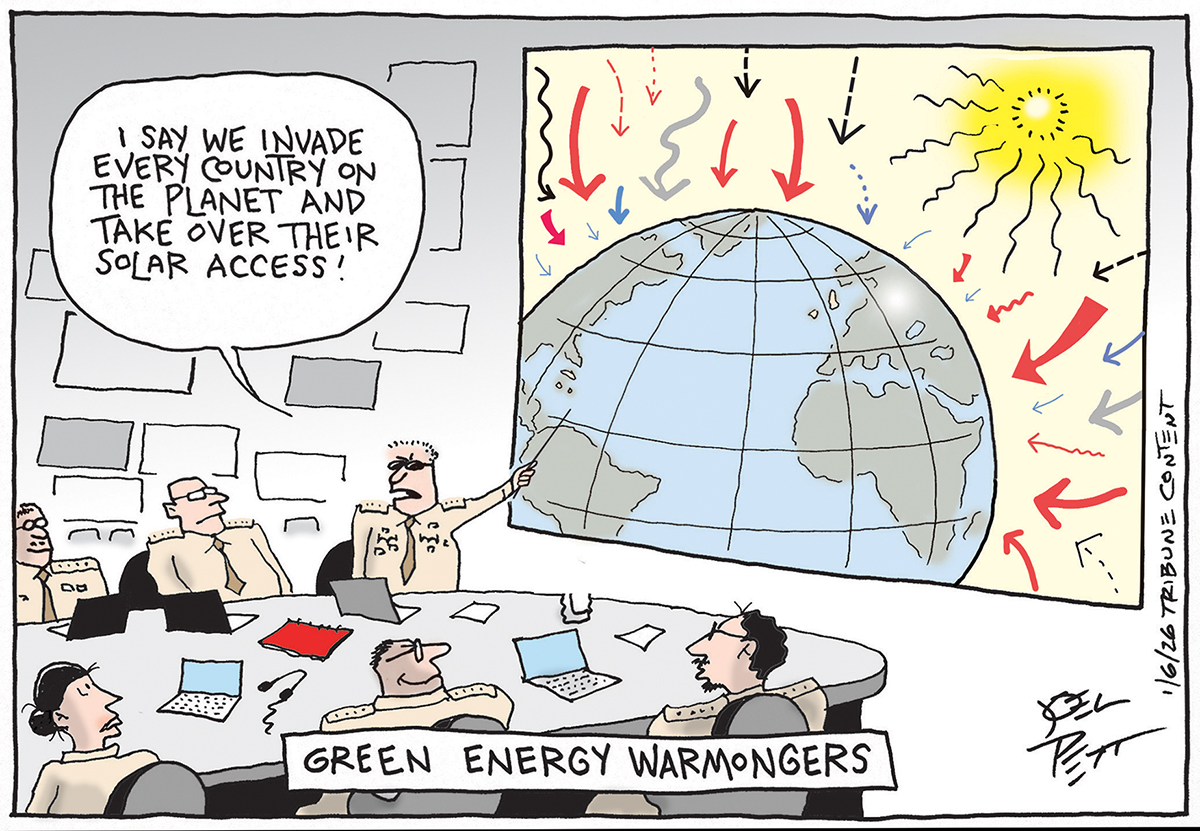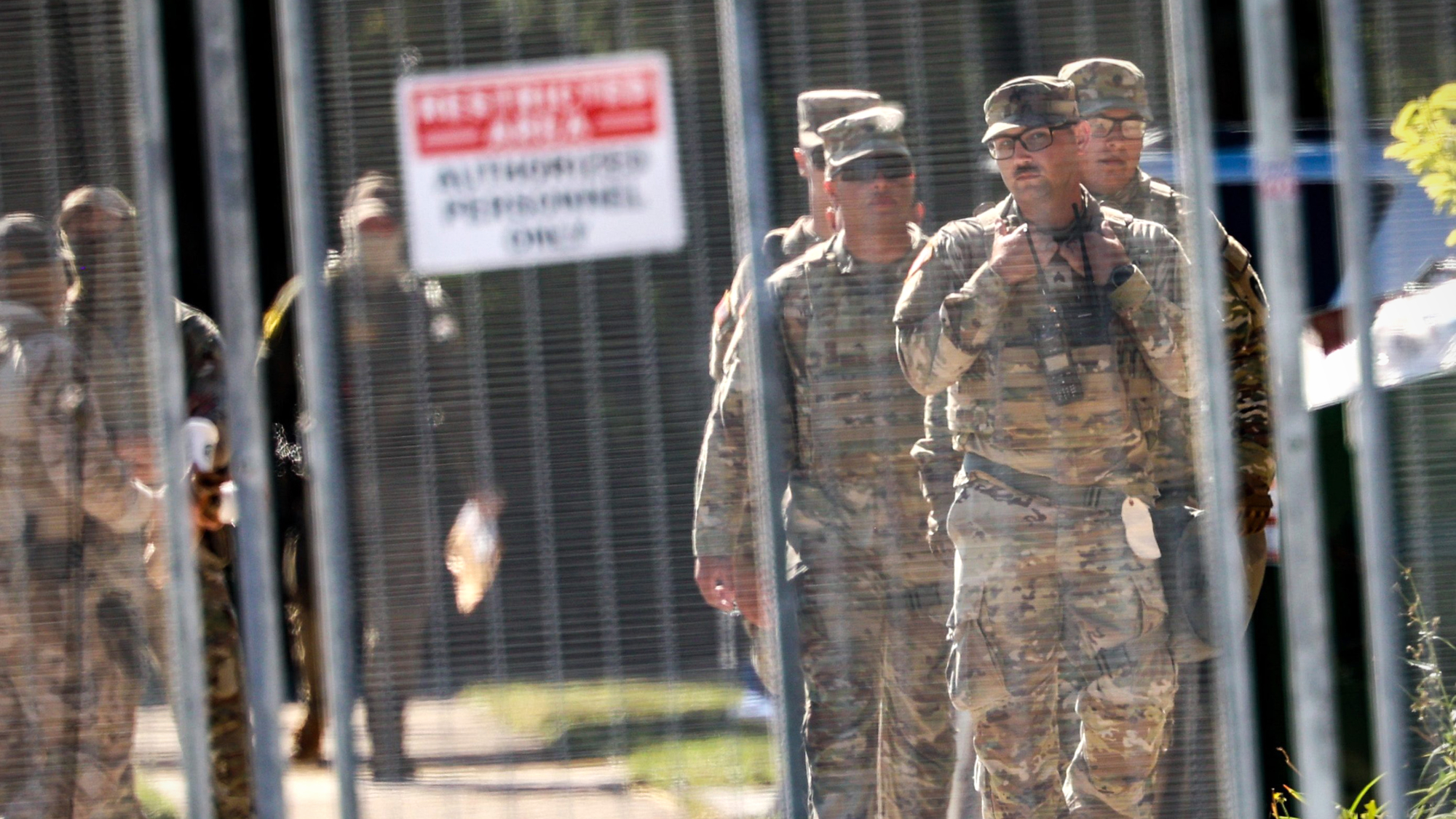Is Trump sidelining Congress' war powers?
The Iran attack renews a long-running debate


President Donald Trump's decision to attack Iran has renewed a long-running debate about war powers. The Constitution gives Congress, not the president, the authority to declare war. But presidents routinely wage war anyway, citing their role as commander-in-chief. Where does the power really reside?
Trump "faces bipartisan pushback" for authorizing the attack on Iran without congressional input, said ABC News. Reps. Thomas Massie (R-Ky.) and Rep. Ro Khanna (D-Calif.) introduced a resolution to restrain Trump from acting, saying there was "no imminent threat" to the U.S. that would justify attacking Iran without congressional approval. But Sen. Lindsey Graham (R-S.C.) said Trump has all the authority he needs. Congress "can't be the commander-in-chief," he said.
Trump's decision to act unilaterally "comes at a uniquely volatile moment" both in America and around the world, said The Associated Press. The War Powers Act, a 1973 law, says the president should consult with Congress in "every possible instance" before authorizing an attack. But it has been "habitual practice" for presidents to "minimally" meet the requirements, said Scott Anderson of the Brookings Institution. The law is "so vague and open-ended" that it is difficult to enforce.
The Week
Escape your echo chamber. Get the facts behind the news, plus analysis from multiple perspectives.

Sign up for The Week's Free Newsletters
From our morning news briefing to a weekly Good News Newsletter, get the best of The Week delivered directly to your inbox.
From our morning news briefing to a weekly Good News Newsletter, get the best of The Week delivered directly to your inbox.
What did the commentators say?
Congress has "tried and failed" for two decades to have a meaningful voice in war-making decisions, said Paul Kane at The Washington Post. Presidents of both parties have sent American forces into battle "without any real constraint from Capitol Hill." Congress passed its last "use-of-force" authorization in 2002. Since then, presidents of both parties have ordered attacks on Islamic State forces in Syria and elsewhere. Before that, though, the legislative branch approved six different resolutions to cover every theater the United States fought in during World War II. The change demonstrates Congress' "slow and steady slide into irrelevance."
"Bypassing Congress weakens American democracy," said Conor Friedersdorf at The Atlantic. Earlier congressional debates "helped educate lawmakers and the public" about arguments for and against war and "left a record of who made claims that later proved incorrect." The process allowed citizens to lobby Congress, and later to "hold members of Congress accountable for their choices." Skipping that process "isn't merely anathema to a self-governing republic; it is dangerous."
What next?
Democrats in the Senate are still trying to "forge ahead" with a war powers vote, said The New York Times. But the resolution "stands little chance of approval" in the GOP-controlled Congress, and the shaky ceasefire between Israel and Iran may mean the moment for legislative action has passed. If the war really is over, the "resolution becomes a moot point," said Massie.
House Speaker Mike Johnson (R-La.) said Tuesday he believes the War Powers Act is unconstitutional. "Many respected constitutional experts" say the law violates the president's constitutional authority as commander-in-chief, said The Hill. "I think that's right," Johnson said. Trump's decision to attack Iran's nuclear sites played out "as the framers of the Constitution intended."
A free daily email with the biggest news stories of the day – and the best features from TheWeek.com
Joel Mathis is a writer with 30 years of newspaper and online journalism experience. His work also regularly appears in National Geographic and The Kansas City Star. His awards include best online commentary at the Online News Association and (twice) at the City and Regional Magazine Association.
-
 ‘No Other Choice,’ ‘Dead Man’s Wire,’ and ‘Father Mother Sister Brother’
‘No Other Choice,’ ‘Dead Man’s Wire,’ and ‘Father Mother Sister Brother’Feature A victim of downsizing turns murderous, an angry Indiana man takes a lender hostage, and a portrait of family by way of three awkward gatherings
-
 Political cartoons for January 11
Political cartoons for January 11Cartoons Sunday’s political cartoons include green energy, a simple plan, and more
-
 The launch of the world’s first weight-loss pill
The launch of the world’s first weight-loss pillSpeed Read Novo Nordisk and Eli Lilly have been racing to release the first GLP-1 pill
-
 Unrest in Iran: how the latest protests spread like wildfire
Unrest in Iran: how the latest protests spread like wildfireIn the Spotlight Deep-rooted discontent at the country’s ‘entire regime’ and economic concerns have sparked widespread protest far beyond Tehran
-
 Do oil companies really want to invest in Venezuela?
Do oil companies really want to invest in Venezuela?Today’s Big Question Trump claims control over crude reserves, but challenges loom
-
 What is the Donroe Doctrine?
What is the Donroe Doctrine?The Explainer Donald Trump has taken a 19th century US foreign policy and turbocharged it
-
 What is China doing in Latin America?
What is China doing in Latin America?Today’s Big Question Beijing offers itself as an alternative to US dominance
-
 Wave of cancellations prompts Kennedy Center turmoil
Wave of cancellations prompts Kennedy Center turmoilIN THE SPOTLIGHT Accusations and allegations fly as artists begin backing off their regularly scheduled appearances
-
 Why is Trump’s alleged strike on Venezuela shrouded in so much secrecy?
Why is Trump’s alleged strike on Venezuela shrouded in so much secrecy?TODAY'S BIG QUESTION Trump’s comments have raised more questions than answers about what his administration is doing in the Southern Hemisphere
-
 Why is Trump killing off clean energy?
Why is Trump killing off clean energy?Today's Big Question The president halts offshore wind farm construction
-
 Supreme Court bars Trump’s military use in Chicago
Supreme Court bars Trump’s military use in ChicagoSpeed Read
